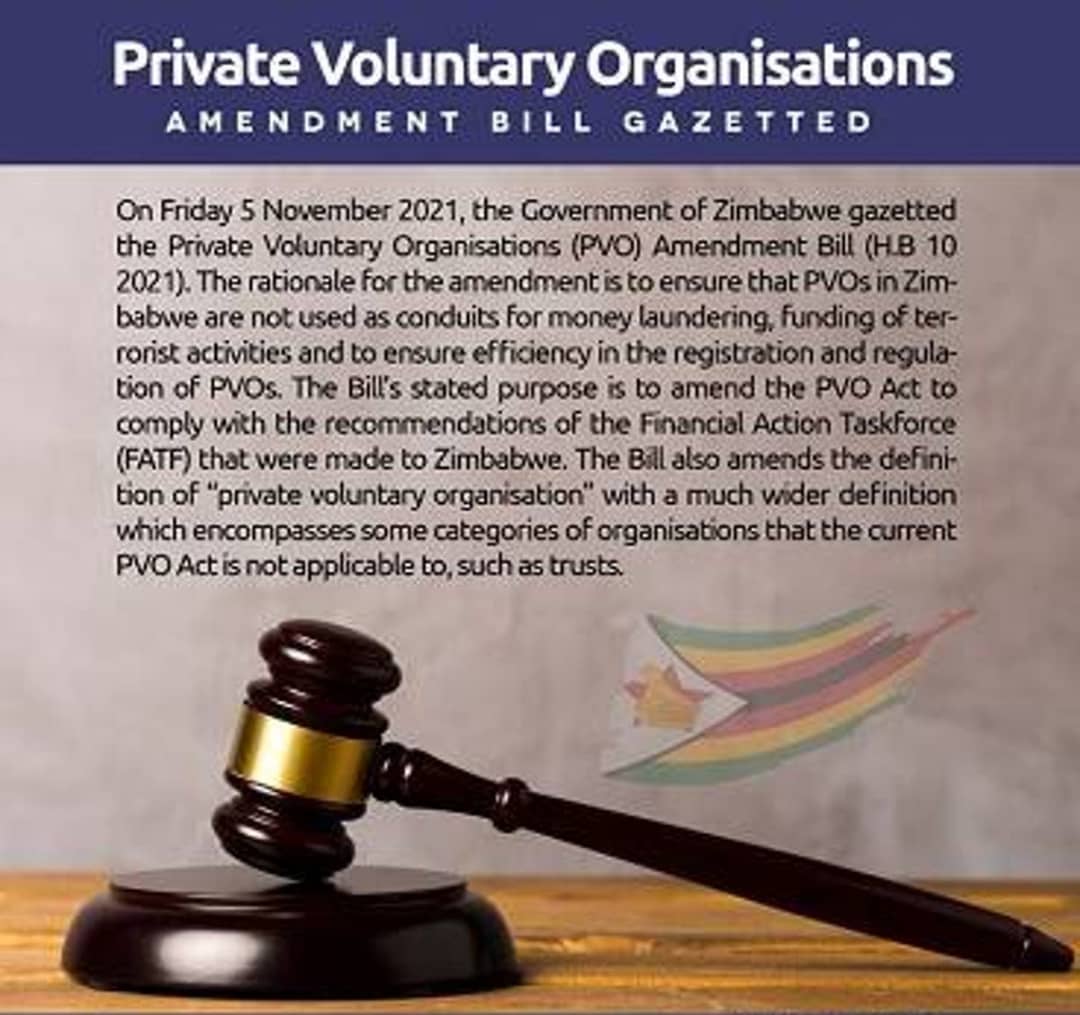Innocent Sibonginkosi Ncube
The Private Voluntary Organisations (PVO) Amendment Bill successfully passed through the Senate on Thursday, marking a significant step towards its potential enactment into law.
This bill, which has faced considerable controversy, was read for the third time without amendments after being returned to the National Assembly for reconsideration.
Acting Senate President, Mashonaland Central Province Senator Eleven Kambizi, after the PVO bill went through today (Thursday) said
“It will clean up a lot of issues that were happening within our charity organisations and it is a historic day.”
Government’s Justification
Justice Minister Ziyambi Ziyambi expressed gratitude to the senators for their support, stating that the bill aims to enhance the administration, accountability, and transparency of charities operating in Zimbabwe. He emphasized that the government has observed instances where some organizations, under the guise of charity, have engaged in partisan activities, directing funds to favored political parties, which he argued undermines the integrity of charitable work.
Justice minister Ziyambi Ziyambi said,
“l want to thank the Hon. Senators for this day that the Lord has made, whereupon our Parliament has passed the Private Voluntary Organisations Amendment Bill [H.B. 2A, 2024].”
Ziyambi highlighted that the bill seeks to “clean up” the operational space for PVOs, ensuring that they do not influence electoral outcomes through financial means. He drew comparisons to practices in developed countries, such as the United States, where organizations cannot register as non-profits if they engage in political campaigning.
Concerns and Opposition
Despite the government’s rationale, the PVO Amendment Bill has faced backlash from various sectors, including civil society organizations (CSOs). Critics argue that the bill does not adequately address concerns related to money laundering and terrorist financing, and that it lacks adherence to international standards set by the Financial Action Task Force (FATF). Amnesty International previously condemned the bill for its potential to stifle the operations of legitimate charities.
“The legal word for charity in our country is Private Voluntary Organisation (PVO), under our law every charity that uses money collected from the public or donated from a foreign government or foreign agencies is required to be registered as a PVO, in terms of the PVO Act which the Bill before you seeks to amend.
“As the government, we are also aware that some so-called charities act in a partisan manner by directing money to favoured political parties or candidates at the expense of other political parties or candidates.
“Partisan assistance using foreign money or money collected from the public under the guise of charity must never be allowed to influence the outcome of national or local elections. In many developed countries, this kind of behaviour is understood to be harmful to the very idea of charity,” said Ziyambi.
Next Steps
The bill now awaits the approval of President Emmerson Mnangagwa to become law. Its passage reflects ongoing tensions between the government and civil society regarding the regulation of non-profit organizations and the broader implications for civic space in Zimbabwe.
Zim GBC News©2024


